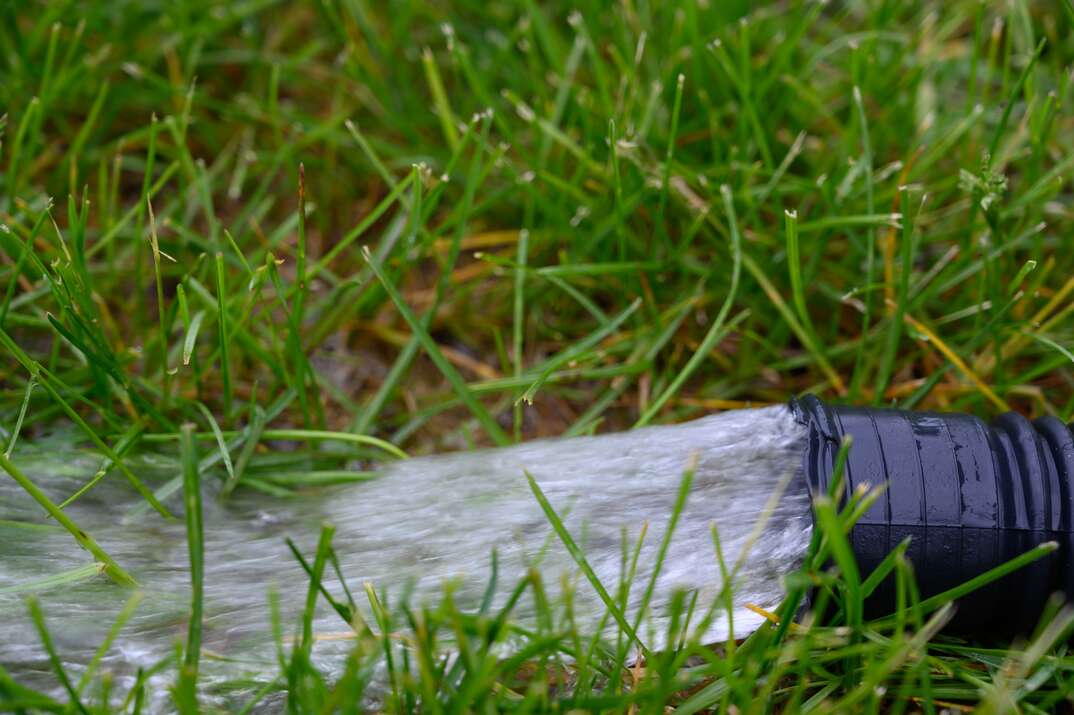What Do You Do If Your Neighbor Diverts Water Toward Your House?

Robert Frost famously offered sage advice regarding fences making good neighbors, but no fence can keep water from intruding on your property if your neighbor diverts it there. Water drainage laws, however, can help.
It can be both awkward and infuriating to find water runoff from your neighbor’s yard in your own yard. Water runoff can lead to major issues, from flooding and wood rot to the growth of mold and mildew — or even a cracked foundation. But what can you do?
Who Is Responsible for Water That Drains Onto Your Property?
In most U.S. states, there is a concept of the law known as the “common enemy rule.” This rule classifies surface water as a common enemy to all property owners — meaning both you and your neighbor. Water that collects on your property is typically just your problem no matter where it flows from — including your neighbor’s property — under this rule. The law expects owners of land to protect their land from both surface and runoff water. This might involve creating a drainage ditch or even building a dike.
While the common enemy rule reigns supreme in most states, all may not be lost. There is a major caveat to this rule.
Even though standing water is each property owner’s problem — no matter where it flows from — the big exception to the common enemy rule is that it must be a natural flow. This is governed under the civil law rule, which is nearly the polar opposite of the common enemy rule.
Under the civil law rule, a neighbor is prohibited from changing the natural flow of water on their land in a manner that would harm another property owner. If they do, and damage or harm results, they can be held liable for the harm that results under water drainage laws. However, modifications are allowed as long as they are reasonable.
For instance, if a neighbor installs a new structure or new landscaping that alters the natural flow of water on their property, damage that results can be attributed to them — and they may be responsible for ponying up compensation for damages if a civil case is filed against them. It’s important to note that in some states that take their cue from the common enemy rule, modifications to the rule have been made that make it less exacting, so discussing your case with an attorney is always best practice.
Paying for Damage
If your neighbor diverted water onto your property — either by accident or intent — and your property suffered damage as a result, you may have the grounds for a civil suit to collect damages under water drainage laws. Damage to your home may also be covered under your (or your neighbor’s) home insurance policy.
Elocal Editorial Content is for educational and entertainment purposes only. The information provided on this site is not legal advice, and no attorney-client or confidential relationship is formed by use of the Editorial Content. We are not a law firm or a substitute for an attorney or law firm. We cannot provide advice, explanation, opinion, or recommendation about possible legal rights, remedies, defenses, options or strategies. The opinions, beliefs and viewpoints expressed by the eLocal Editorial Team and other third-party content providers do not necessarily reflect the opinions, beliefs and viewpoints of eLocal or its affiliate companies. Use of the Blog is subject to the
Website Terms and Conditions.The eLocal Editorial Team operates independently of eLocal USA's marketing and sales decisions.



